The economic drag from weak building approvals data will continue to weigh on the economy and underline the need for strong policy solutions to lift housing construction, according to the Urban Development Institute of Australia (UDIA).
Figures released by the Australia Bureau of Statistics today show building approvals fell by 1.2 percent in June on seasonally-adjusted terms – with the year-on-year decline now running at more than 25 percent.
The trend series for total dwellings has now fallen for 19 consecutive months.
“Weak building approvals will continue to act as a drag on economic growth for the short to medium term,” says Connie Kirk, UDIA National Executive Director.
“The thin approvals pipeline will exaggerate effects across housing construction markets and supply chains, employment and broader economic growth so desperately sought by policy makers.
“We need to ensure every available policy lever is being pulled in favour of investment, jobs, wages and construction activity.
“There is optimism that the Reserve Bank’s cut to the official cash rate and APRA’s recent decision to revise loan serviceability benchmarks will soon feed into confidence among homebuyers.
“Likewise, the settled debate over the future of negative gearing has the potential to draw people back into the market.
“These need to be matched with delivery on commitments to help close the deposit gap for homebuyers and designing the scheme in a way that broadens access and removes barriers to participation.
“The states also need to play a role in stripping back excessive taxes and charges, red tape and complex planning regimes that suppress investment and stall projects.”
UDIA recognises that it will require the Commonwealth, State and Local Governments to work together to remove the impediments to housing supply and affordability:
firstly by reforming the current planning system inefficiencies,
secondly by reducing excessive taxes on houses and
thirdly reducing red and green tape, all of which act as costly handbrakes to the delivery of new housing.
Further details of UDIA’s policy priorities can be viewed at https://udia.com.au/policy-centre

